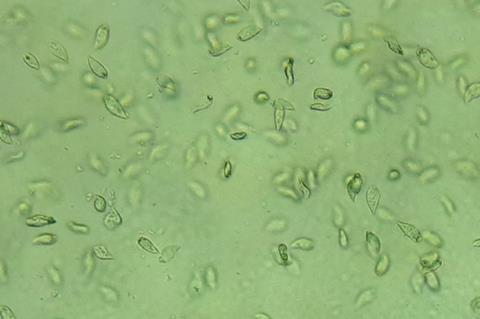Bacterivorous soil protists may regulate the activity of plant growth promoting bacteria (PGPB), boosting plant growth even further, according to a new study.

The research by a team at Uka Tarsadia University in India explores how predation pressure by protists contributes to plant growth promotion.
‘Predation pressure regulates plant growth promoting (PGP) attributes of bacterial species’ has been accepted by the Journal of Applied Microbiology, an Applied Microbiology Interntaional publication.
Predation pressure
Corresponding author Dr Natarajan Amaresan said the plant growth promoting (PGP) attributes of PGPB species had been altered under predation pressure of protists, ultimately enhancing plant growth under in vitro laboratory assessments.
“Despite the promising features of protists for plant growth promotion via nutrient mineralization and shift in bacterial community composition, our basic understanding of effect of protists on PGP attributes of bacteria remains limited,” he said.
“Moreover, to develop and maintain the protist-PGPB consortium itself is a difficult task. Additionally, no attempts have been made to evaluate the effect of protist predation pressure on PGP secondary metabolite production such as (indole-3-acetic acid (IAA), siderophore and ammonia production, phosphate solubilization) by bacteria under laboratory conditions in the presence of protists using high nutrient media, due to the overgrowing of bacterial species under high nutrient conditions.”
Consortium cultures
The team therefore focused on developing the basic technique of making protist-PGPB consortium cultures. These cultures were sub-cultured on 1% NB-PAS media repeatedly 3-4 times for five days to continuously expose PGPB under protist predation pressure to inoculate PGP testing media, ultimately resulting in altered secondary metabolite production by the bacterial species.
“First, we selected three different PGPB species, Enterobacter cloacae, Pseudomonas fluorescens and Bacillus cereus, based on their previously characterized PGP properties, to evaluate the effect of predation pressure on the PGP attributes of these bacteria,” Dr Amaresan said.
“Then different protists were isolated from rice-rhizosphere soils and five species were identified by 18S rDNA sequencing, including Acanthamoeba lenticulata, Vermaamoeba vermiformis, Colpoda elliotti, Tetrahymena sp. and Crytolophosis mucicola.
“Additionally, another two protists (unidentified genus of Kreyellidae and Acanthamoeba genotype T4) were also selected for investigation from our previous work.
Plant growth promotion
“After isolation, enrichment, and identification, mono-axenic cultures of protists with PGPB were prepared. The PGPB alone and PGPB under predation pressure (mono-axenic culture) were tested for their PGP attributes - qualitatively and quantitatively - using standard protocols.
“After that, the effect of PGPB alone and PGPB under protist predation pressure were tested on rice seeds at laboratory scale level using agar plate assay. The statistics and correlation analysis were performed to draw the overall conclusion for the present investigation.”
Dr Amaresan says it has been difficult to test the protist-bacterial combination using high nutrient media, because bacteria will overgrow the protists and it has been difficult to draw conclusions about the overall effect.
The next step will be to focus on more protist-PGPB interaction exploration, testing of other PGP attributes of PGPB under protist predation pressure, its combined effect on plant growth promotion using different plants, and in-depth examination of the mechanism underlying it.
‘Predation pressure regulates plant growth promoting (PGP) attributes of bacterial species’ appears in the Journal of Applied Microbiology.







No comments yet